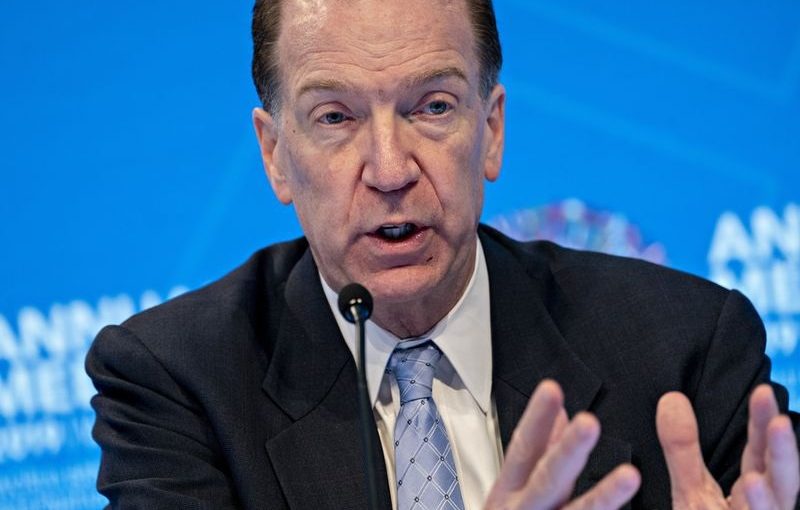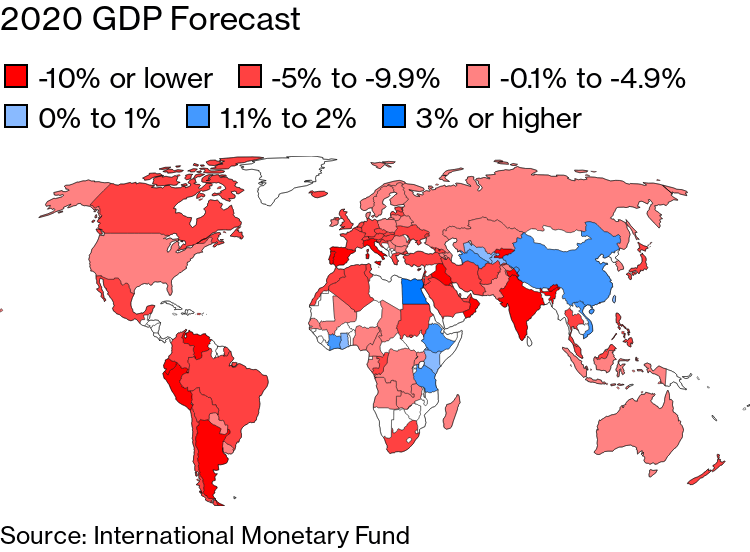Einstein's violin sells for £860k at auction
G-20 extends debt relief plan amid warnings it’s not enough

FILE - David Malpass[File photo: Andrew Harrer/Bloomberg]
- Relief for poorest nations to continue into first half of 2021
- World Bank had advocated for yearlong extension to DSSI
The world’s richest nations agreed to renew a debt-relief initiative for the poorest through at least the first half of 2021, falling short of a World Bank call for a full-year extension as the coronavirus pandemic entrenches poverty.
The G-20, in a communique issued by president Saudi Arabia, said it could order another six-month extension next year. It also pledged to hold an extraordinary meeting before leaders gather in November to further discuss debt relief.
Member nations were disappointed at the lack of progress in extending the plan to involve private creditors, according to the statement. In an online press conference, World Bank President David Malpass called for rapid progress on a comprehensive debt framework “because the risk of disorderly defaults is rising.”
The consequences for some countries are dire. The World Bank calculates that the debt of the poor nations eligible for the external debt relief initiative climbed to a record $744 billion last year. Nations are often forced to choose between servicing debt or spending on social and health programs.
“Debt payment relief for the poorest countries is good news, but it’s a short term solution,” said Eric LeCompte, the executive director of Jubilee USA Network, a non-profit group that advocates for debt relief for smaller economies.
“We’re disappointed not to have a stronger agreement on a permanent debt reduction process yet, but it’s hopeful that the G-20 is holding a special meeting on this process in the coming weeks.”
Private Credit
The G-20 unveiled the Debt Service Suspension Initiative in April to provide billions of dollars in relief for 73 eligible nations. So far, more than 40 have applied for the help that was set to run through the end of December, most in sub-Saharan Africa. The World Bank estimates countries could save $12 billion owed to government creditors this year.
Eligible countries can also ask private creditors to freeze repayments, but only a few have done so — a major failing according to advocacy groups. That point was also taken up by International Monetary Fund Managing Director Kristalina Georgieva on Wednesday.
The private sector has “regrettably” shied away from debt relief, she said in a virtual news conference. Meanwhile, “countries themselves shied away from asking the private sector because of fears that that may erode their future access to markets, access they have earned the hard way in previous years,” she said.
Malpass had called on the G-20 to extend debt relief until the end of next year, and said that hedge funds and China should participate more. China is owed almost 60% of the bilateral debt that the world’s poorest nations would be due to repay this year.
He won support from German Finance Minister Olaf Scholz, who on Wednesday called for a deal that includes “a lot of other countries which are not participating in the debt suspension now.” China has to be “part of the solution,” he said.
Advocacy groups like the European Network on Debt and Development say government relief alone is insufficient. In a recent report, it likened the initiative to “draining out the Titanic with a bucket” and argued it only pushed debt crisis risks “further down the road.”
Debt ‘Tsunami’
A lack of participation by private and multilateral lenders limited the program’s impact, the network said, noting that only 24% of debt payments due by beneficiary countries between May and December 2020 were subject to the potential suspension.
Pushing it into the first half of 2021 would cover 44% of debt payments by the countries that had requested participation, according to the report.
With Covid-19 threatening to set the fight against poverty back decades, extending the debt plan was the bare minimum the G-20 could do, said Jaime Atienza, a debt expert at Oxfam International.
“The failure to cancel debt payments will only delay the tsunami of debt that will engulf many of the world’s poorest countries,” Atienza said.
By Vivian Nereim, Brian Swint, and Eric Martin
I welcome #G20’s decision to extend the Debt Service Suspension Initiative (DSSI) and agreement on a Common Framework to ensure all creditors do their part to alleviate unsustainable debt burdens in low-income developing countries. pic.twitter.com/6xYQ1ZYcjw
— Kristalina Georgieva (@KGeorgieva) October 14, 2020













Leave a Reply
Be the First to Comment!
You must be logged in to post a comment.
You must be logged in to post a comment.